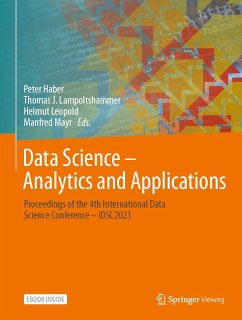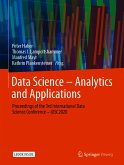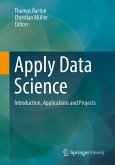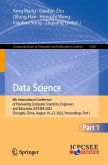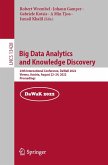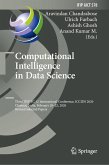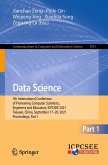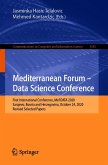Recent technological advancements in the domains of Artificial Intelligence, Internet of Things and Production 4.0 have generated a fertile ground for plentiful data science investigations. In parallel data science developments have also gained momentum at several industrial settings to support and improve production outputs as well as market performances.
The yearly International Data Science Conference (iDSC) 2021, in its fourth edition, virtually presented by AIT Austrian Institute of Technology on 20th an 21st October, therefore followed once more its founding mission, to team scientists and researchers on one hand and industrial practitioners on the other to common discuss the latest data science innovations from a diverse range of research backgrounds and to showcase new implementations from factory shop floors or from sensor driven applications in the field.
The six thematic sessions of the conference have been mirroring allthe top issues of the data science discipline ranging from challenges in the industrial setting, via Deep and Machine learning methodologies and NLP approaches up to future innovation strategies. While the Research Track had a strong emphasis on Safety and Security matters like Anomaly Detection, Integrity Awareness or Ethical fairness of AI e.g., the Industry Track more made deep reflections on the Scaling of Business models, Infrastructure and Software, the Use of Data Science in SMEs, or the development of Data Ecosystems as an Incubator for Data Innovation.
The conference proceedings contain the peer-reviewed full papers of the research track and the corresponding German abstracts as well as short papers from the industry track.
The Editors Peter Haber is Assistant Professor of Information and Communication Technology, in particular for analog and digital signal processing, and responsible coordinator for system theory andelectrical engineering at Salzburg University of Applied Sciences. He is a researcher and project manager, leading and coordinating national and international projects in the field of IT and IT management, while also integrating data science solutions at businesses. Since 2009 he has been a member of the international advisory board for the IATED conferences.
Thomas Lampoltshammer is an Assistant Professor for ICT and Deputy Head of the Centre for E-Governance at the Department of E-Governance and Administration, Danube University Krems, Austria. His current research focus is on the domain of data governance, the effects of ICT application in a connected society, and the effects on a data-driven society. He has a substantial background in the design and implementation of expert and decision-making systems, data analytics, and semantic-based reasoning.
Helmut Leopold is the Head of Center for Digital Safety&Security at the AIT Austrian Instituteof Technology and is responsible for research areas such as artificial intelligence and cyber security. Prior to AIT, Mr. Leopold was at Alcatel and at Telekom Austria where he played a major role in the digitalization transformation of the organisation. He graduated in computer science from the TU Vienna and holds a PhD from the Lancaster University in England.
Manfred Mayr is the Academic Program Director for "Business Informatics and Digital Transformation" as well department head for IT-Management at Salzburg University of Applied Sciences. He is a lecturer at international conferences and the author of various publications in the field of business informatics and business applications. The digitalisation of ERP applications in the industrial environment is a long-standing and important field of his research. In addition, he has coordinated several national and international research projects.
Dieser Download kann aus rechtlichen Gründen nur mit Rechnungsadresse in A, B, BG, CY, CZ, D, DK, EW, E, FIN, F, GR, HR, H, IRL, I, LT, L, LR, M, NL, PL, P, R, S, SLO, SK ausgeliefert werden.

